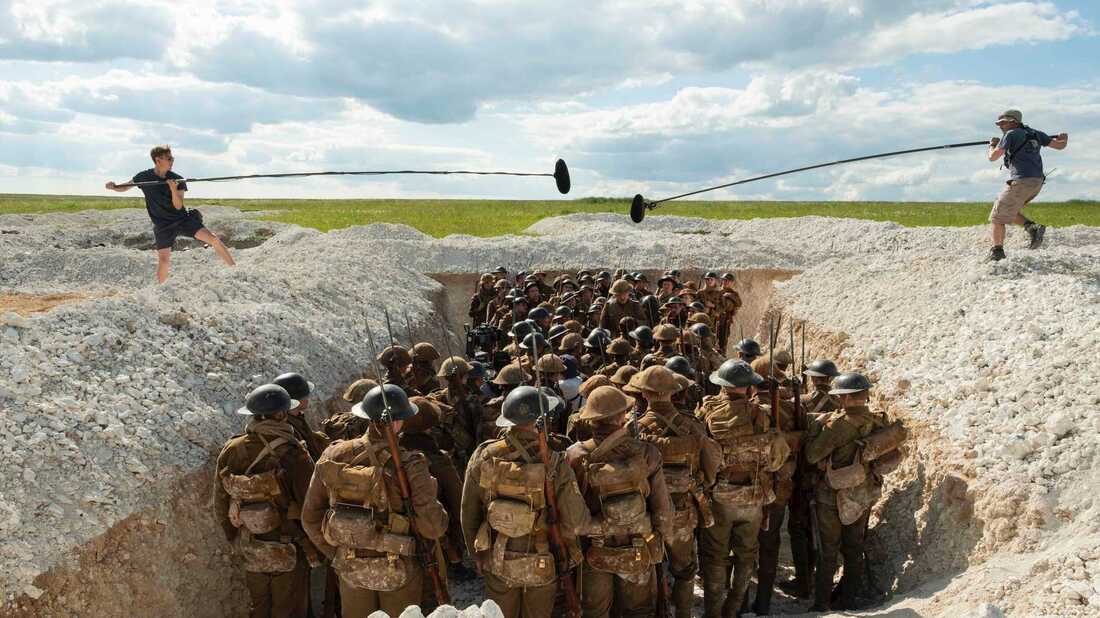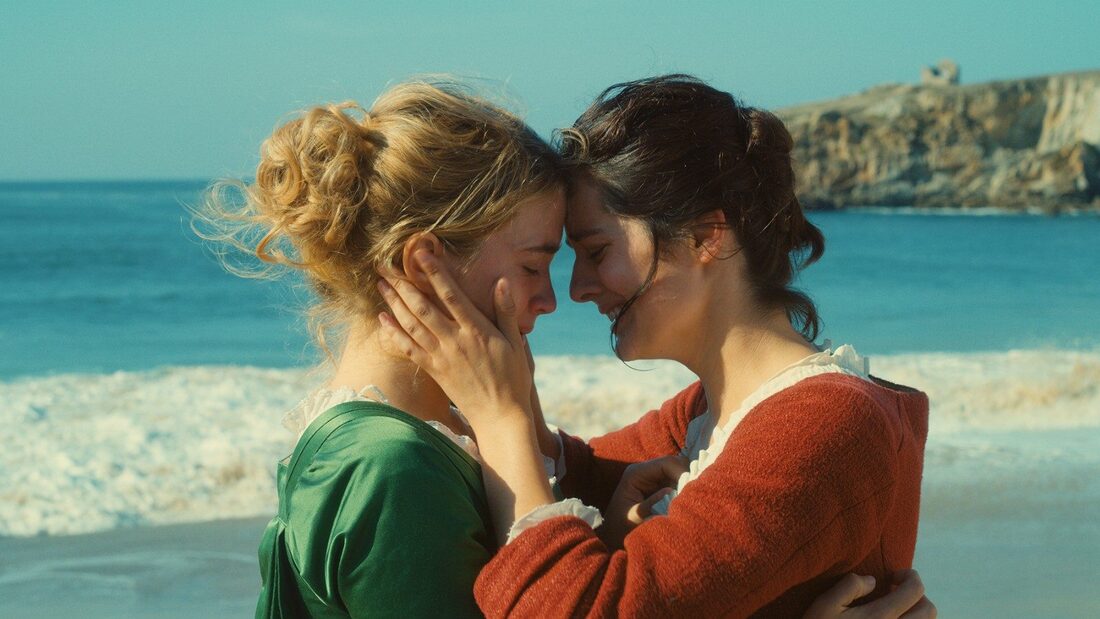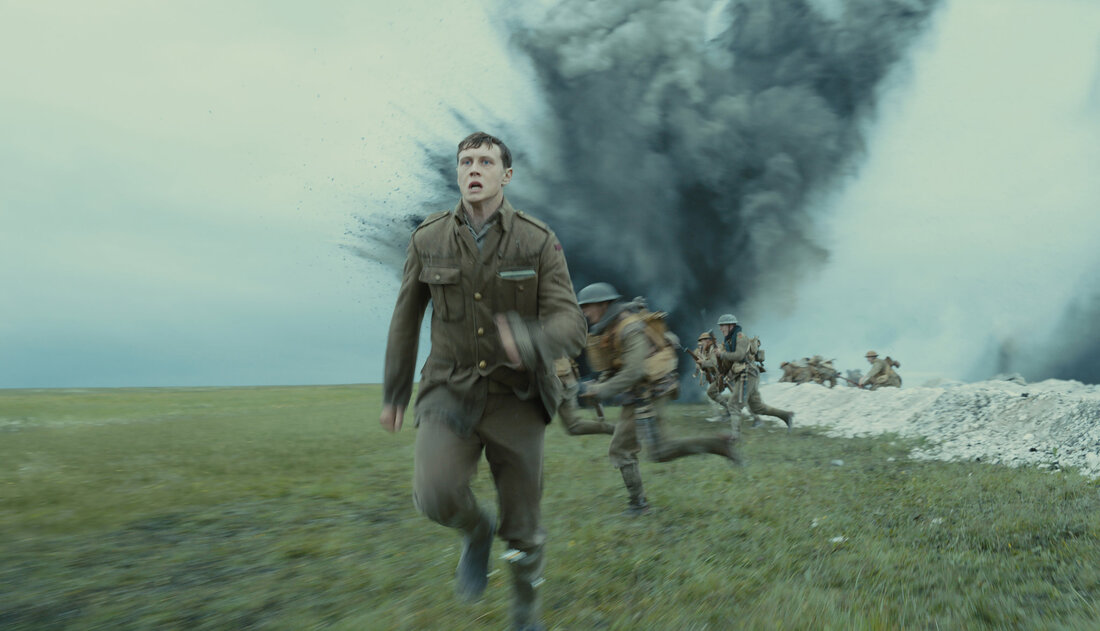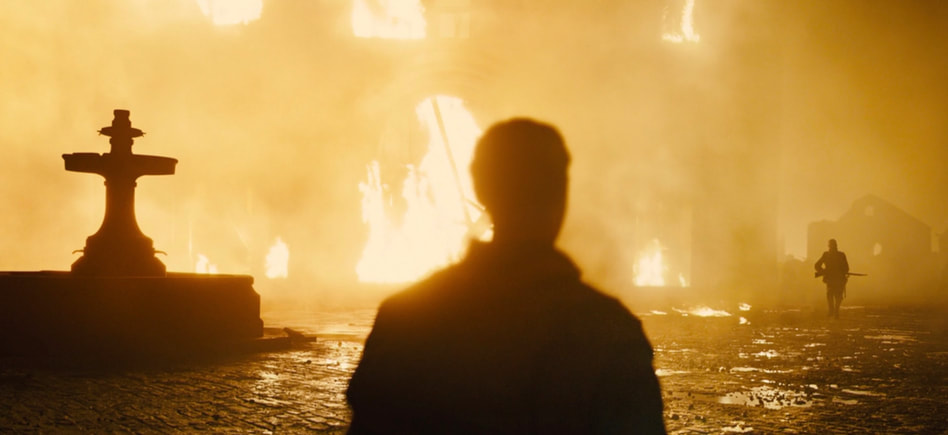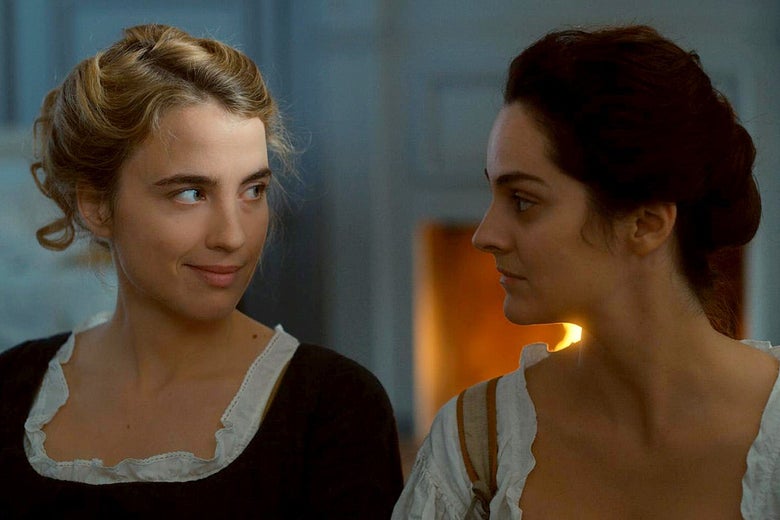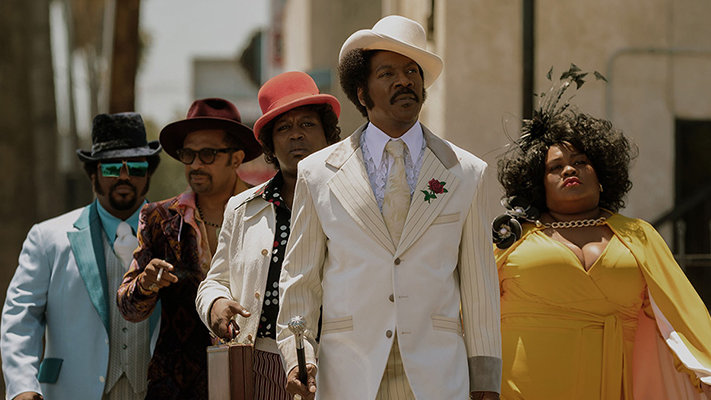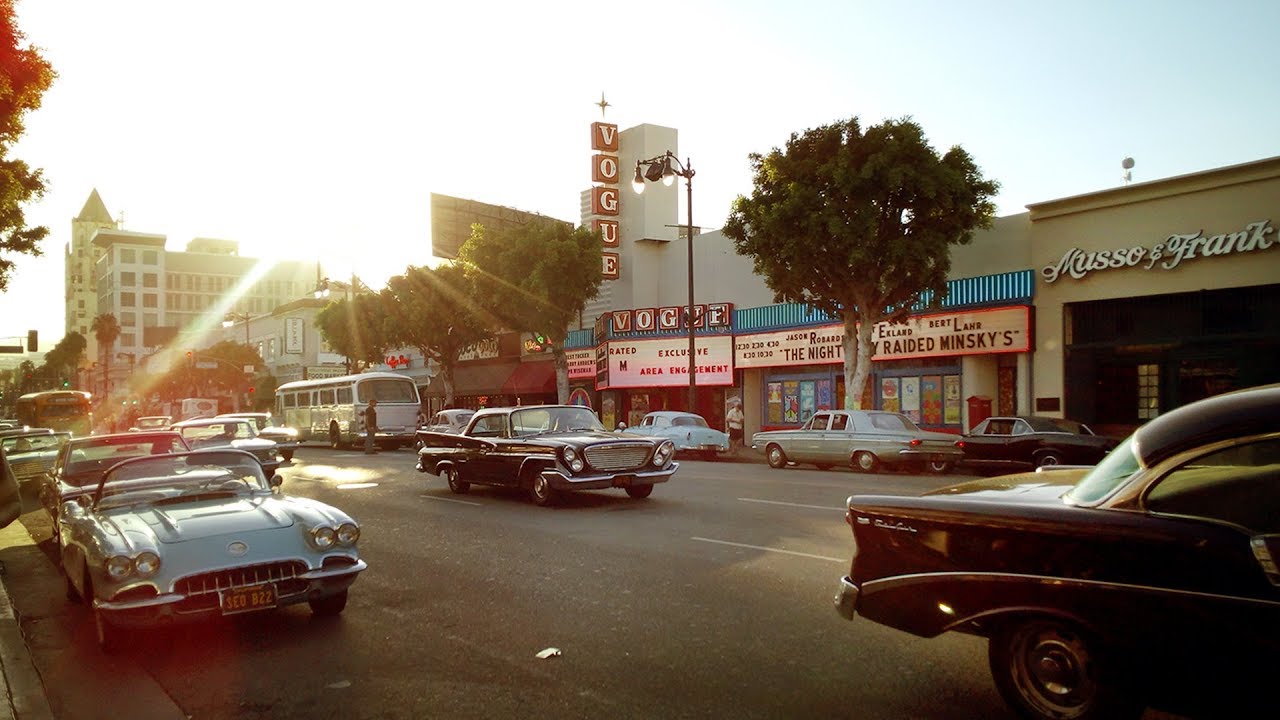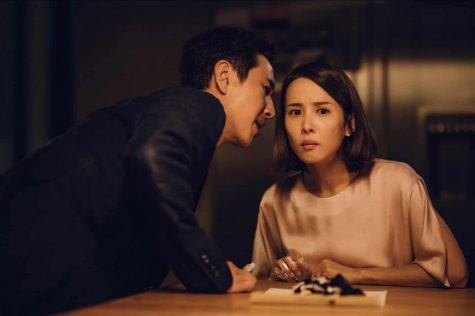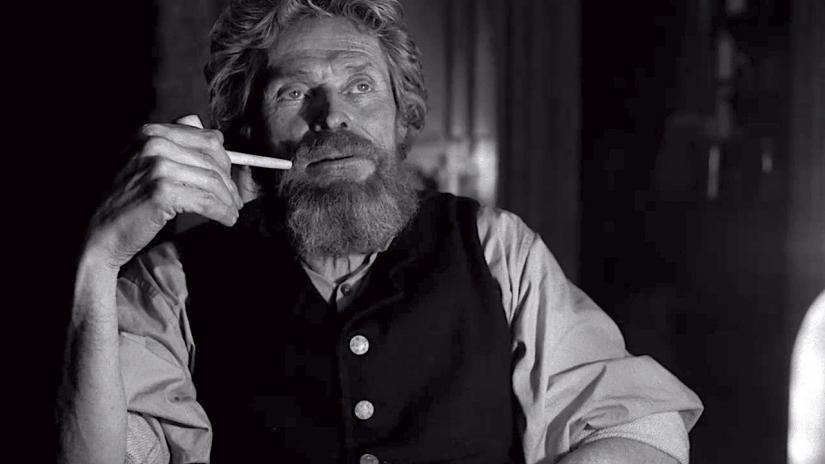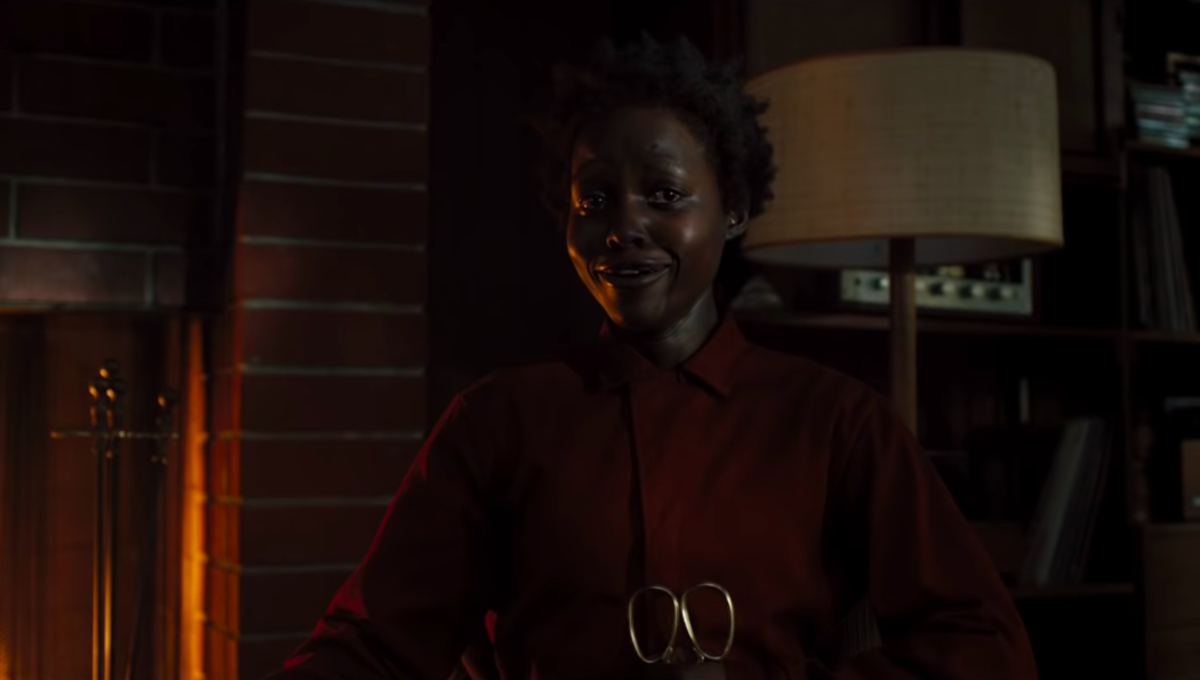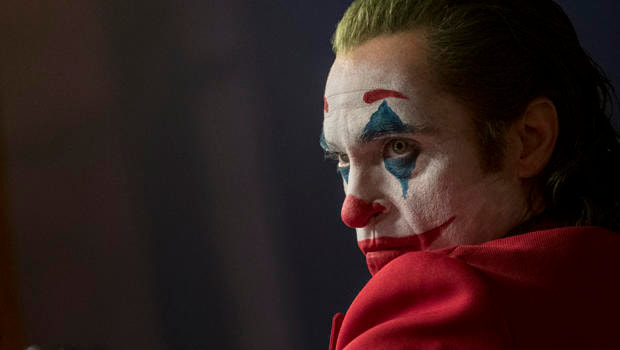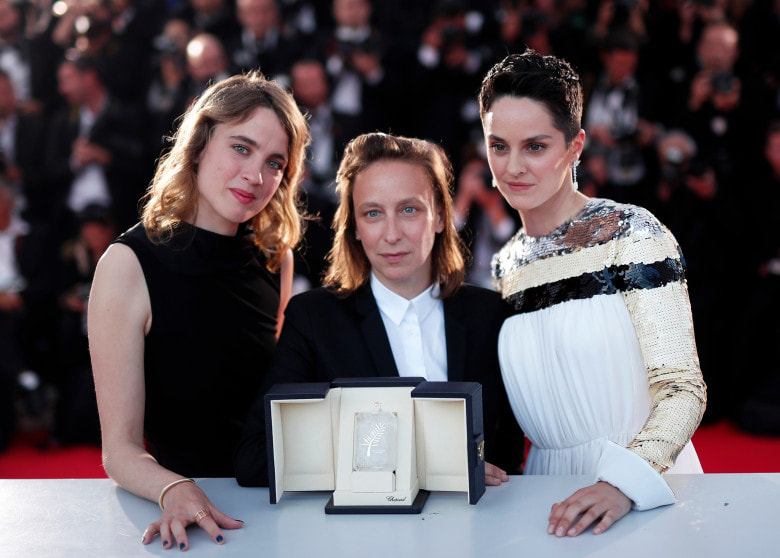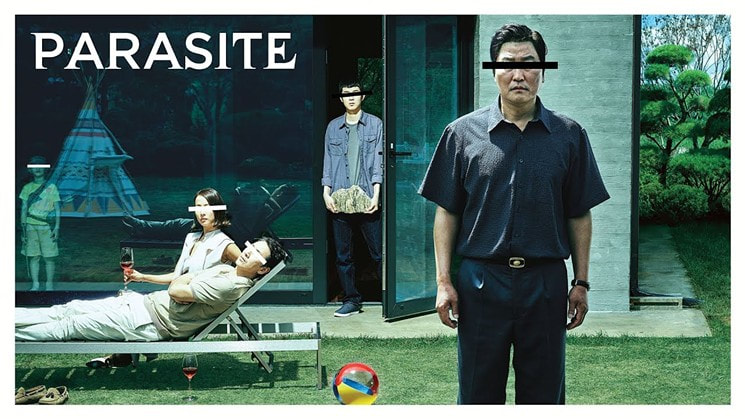|
Hello, all, and welcome back to The Friendly Film Fan! Exactly one week ago today, I posted my list of official nominees for the 4th Annual Fisher Awards (a show meant to stand in for what my version of the Oscars would look like), and began the journey towards selecting the winners that would be announced today. It wasn’t easy picking just one out of all the excellent candidates for each individual category, but a winner is a winner, and should be recognized as one. Truthfully, all of the films that were in the running for these first place finishes are great, and their nominations within certain categories are undeniable, but even the greats must bow to their kings and queens. And now, the time has come for me to crown them. To recap: each category is the same as the Academy’s, except wherein two closely associated categories are combined into one that’s easier to follow, such as Sound Design (Sound Editing and Sound Mixing, combined) or Character Design (Costumes + Hair and Makeup). I also like to take some time with each nominee to write about why I chose it to win that particular category, so if you need a refresher on who the nominees actually were, here is that. These were incredibly hard decisions to make, but in the end, only one entry per category can take home the pride of knowing they won this award that no one’s ever heard of. Here are your winners for the 4th Annual Fisher Awards! Best Sound Design: 1917 For a very long time, it seemed as if Ford v Ferrari was poised to drive away with this spot, but the more I thought about the sound design in Sam Mendes’ one-shot WWI epic, the more I couldn’t stop thinking about it while trying to move on towards other things. Sure, the engine roars and triumphant RPM boosts of Ford v Ferrari enhance that film quite a bit, but the bombs and gunshots present in 1917, as well as some more subtle miracles, like the river running calm after a while, are a huge part of making what’s happening feel more dire and immediate. 1917 makes you feel desperate for these men to complete their mission, and the sound one hears when they get shot at is one of the key elements of making us feel like they might not make it in time. That’s hard enough to do in a regular movie. To do the trench run, with all the sound that requires and with only enough explosives to try it four times, is a feat of filmmaking that will not soon be surpassed. Best Visual Effects: The Lion King I feel like this one should be obvious right from the get-go, considering all but one shot of this film is entirely created with visual effects, and yet, the Academy themselves seem all but determined to forget that this movie ever came out (though, to be fair, who could blame them?). The Lion King (2019) may not be Disney’s best live-action adaptation of its back catalogue, even by quite a stretch, but the visual wizardry required to pull off making not just the environments (and the animals in those environments) look photoreal using only VFX is nothing short of the most immense leap forward in CGI since The Jungle Book (2016), and both movies were helmed by the same guy. Jon Favreau may not always hit the nail on the head, but when he sets his mind to a visual challenge, he always rises to the occasion. In that regard, The Lion King (2019) is an astounding achievement. Best Screenplay: Céline Sciamma, Portrait of a Lady on Fire Greta Gerwig’s masterful adaptation of Little Women should be cakewalking to a win in the Adapted Screenplay category at the Oscars in any just world, but the quiet power of Portrait of a Lady on Fire’s original dialogue and masterful storytelling take the gold here (well, if I had gold to give out). The way every word of Sciamma’s script is a portrait on the page, painted with words, is a remarkable feat, and the way she brings together even the most subtle of threads by the film’s end to wrap it all up with one the most striking moments in all of 2019 comes as a result of building all those threads in her script throughout the film’s runtime; whereas the power of Little Women is in the adapting, the Portrait of a Lady on Fire’s power comes from nothing but the script itself, and if you’ve seen the film, one particularly well-placed ancient story makes any and all cases for its win in this category. Best Original Score: Thomas Newman, 1917 Hildur Guðnadóttir will win this Oscar for Joker, and I will not have no qualms about it because despite how weak the film is on the whole when stacked against its fellow nominees, the score in it remains one of the two strongest elements it possesses. To me, though, a good score is all about balance – how does the music fare in the film when stretched across its length, and does it stay consistently engaging throughout? Alan Silvestri’s remarkable remixing of familiar themes and new sounds for Avengers: Endgame makes a great case, but it’s Thomas Newman’s work on 1917 that receives this award from me. Throughout the film, Newman’s score pulses with tension, wonder, awe, and desperation, often all at the same time. “Sixteen Hundred Men” will go down as one of the most iconic tracks to be composed in any movie from 2019 (along with Call Me Joker and Portals), to be sure, but it’s the rest of the score, with its powerfully quiet moments and occasionally Lord of the Rings-esque sense of wonder, that causes this film to rise to the occasion and take home this award. Newman could upset at the Oscars, but I just don’t see it happening there, so at least he has this award to brag about. Best Cinematography: Roger Deakins, 1917 Really, who else could it have been? Okay, okay, Claire Mathon’s masterful work in Portrait of a Lady on Fire nearly took home this award, but the way Roger Deakins and company pulled off the telling of 1917 in a single shot (or two single shots, if you want to be picky about it) is simply undeniable. Deakins immerses you into this world with shocking ease (even for a DP as skilled as him), many of his camera’s movements impossible to make without his level of craft and skill. I still have no idea how he was able to maneuver all the way through No Man’s Land, down into the trenches, and all the way towards the film’s climax without even one of those shots looking handheld or in any way shaky. And, in all of this, everything is perfectly placed in the frame, the blocking of each set piece, each actor, remarkably well-set. If still frames were all cinematography required, though, Portrait of a Lady on Fire would be taking this award home; as it stands, it requires not just a great still image, but knowing how to move the camera on the way to capturing those images, and that is why Deakins’ work on 1917 stands as the greatest achievement in cinematography of the past year. Best Film Editing: Julien Lacheray, Portrait of a Lady on Fire It’s a real shame that this film’s marketing team ran no FYC campaigns outside of Best International Feature (for which this film was not submitted by France), because it likely would have scored a number of nominations in outside categories, not the least of which is Best Film Editing. In terms of that ceremony, it’s like that Ford v Ferrari takes home the gold due to how showing that editing is (although Jojo Rabbit or Parasite could upset), but the editing in Portrait of a Lady on Fire is (and I say this with 100% sincerity) absolutely flawless. There is not one cut that comes too soon, not one camera movement that feels to rushed or finishes before it’s meant to, and not a single moment feels any longer or shorter than exactly how long or short it needs to be in order to communicate what it’s attempting to say at full power and conviction. Julian Lacheray’s work on this film feels like a snub by the Academy, even though it was never submitted for consideration in any categories; that’s how perfectly the film moves, and anyone should feel so accomplished to achieve even half of what he’s pulled off with this film. Best Character Design (Costumes + Makeup & Hairstyling): Dolemite Is My Name It is ridiculous that Ruth E. Carter and the makeup team for Dolemite were all but shut out of the Oscars conversation the minute the costumes and hair/make-up candidates were announced. I mean, I liked the makeup work in the Academy’s nominees, but nothing comes close to capturing an era in both cinematic and black history better than the character design in this movie, and considering Carter already has an Oscar for Costume Design for Black Panther, it’s no surprise she once again brings out the best of the best for her costuming here. Every bit of the characters’ design in Dolemite screams fun, especially when the Dolemite movie is shooting during the course of the film. The colors pop off the screen like something out of an actual blaxploitation-era film, and it’s such wonderful design work, not giving it the win here would feel like a betrayal. Congratulations, Ruth E. Carter and company; the Oscars may have snubbed you, but the Fishers wouldn’t dare. Best Production Design: Barbara Ling and Nancy Haigh, Once Upon a Time…in Hollywood It was a very close call between this, Parasite, and 1917, but if you were around for my version of these awards last year (dubbed The Redfords at the time), then you know I can’t help but stare with awe at how some design artists recreate entire areas, restoring them back to exactly as they were in a particular era, and that is exactly what Barbara Ling does in Once Upon a Time…in Hollywood. The recreation of 1969 Los Angeles (especially Hollywood Boulevard, which they’re still working on taking down) is astounding and inscrutable, down the most minute detail the average viewer wouldn’t even think to be looking for. Tarantino is an incredibly detail-oriented director, and to see someone working with him for the first time pull off their job this well is something akin to a production design miracle. Who knows how the Oscars will play out, but for now, Ling takes home the award here. Best Supporting Actress: Cho Yeo Jeong, Parasite Oh, Laura Dern, how I love your performance in Marriage Story (and how wonderful that you’ll finally get an Oscar for it). Despite how much I love it, though, Cho Yeo Jeong’s performance in Parasite as the matriarchal anchor of the Park household (that’s the rich family, for those of you who won’t look up the names) plays so many wildly disparate notes throughout the film that one can’t help but stand in awe of how naïve, how brilliant, how caring, and how cold she is, often all at the same time. Sure, Laura Dern’s turn in Marriage Story is great, but whereas that performance mostly stays within the same archetype of its character, Cho Yeo Jeong’s performance seems to change her archetype’s nature with every different note she plays, and this happens more than once. It’s a shame and a sham that the Oscars nominated no acting performances from this film (though I think it has somewhat to do with it being an ensemble cast who are almost all as strong as each other, performance-wise), but the Fishers will not let Cho Yeo Jeong go home empty-handed. Best Supporting Actor: Willem Dafoe, The Lighthouse Brad Pitt is well-deserving of his eventual Oscar for his work as Cliff Booth in Once Upon a Time…in Hollywood, and no one can take that away from him, but if Willem Dafoe were even in the running at the Academy Awards, we may be talking about a very different race in this category. Unfortunately, the Academy’s horror bias leaked into all categories but cinematography, so we’ll have to give him his award here. Dafoe is a powerhouse in The Lighthouse, by far the best supporting performance of the year, and his terrifying disposition is the prime example of why the Oscars should have nominated him in the first place. His monologues in this film are prime examples of his mastery of the Eggers’ brilliantly lived-in dialogue, and he carries each word with such weight that it feels somewhat impossible to actually describe just how good he is at carrying them. He is truly powerful here, and if you have any doubts as to why he’s winning this award, let me put those to rest by linking you to this clip. Best Actress: Lupita Nyong'o, Us Speaking of horror biases, it is absolutely unforgivable that our winner here (nor Awkwafina in The Farewell) was not recognized by the Academy for her astounding performance in Jordan Peele’s sophomore effort, Us. Both leads from Portrait of a Lady on Fire very nearly took this category, but whereas they are both playing singular characters, Nyong’o is pulling double duty here, and giving Oscar-worthy performances in both roles individually. History will not look back kindly on the way the Academy decided to all but ignore her in this category, especially after her SAG nomination boosted her chances of being nominated. Every nuance of both character’s in present in both of Nyong’o’s performances, and with her anchoring this film, it rises to far greater heights than it otherwise might have been able to. Both Adelaide Wilson and Red are two completely different characters, and yet they must have some of the same qualities without feeling like they’re cut from the same cloth, and Nyong’o doesn’t just rise to the occasion – she becomes the occasion. It’s an astounding performance from one of our greatest living actresses working today, and she, more than anyone, deserves this award. Best Actor: Joaquin Phoenix, Joker The other of Joker’s aforementioned two strongest elements, Joaquin Phoenix’s performance in this film is simply an undeniable achievement. To carry the burdens that Arthur Fleck does is hard enough, but to genuinely play deranged as sympathetic and the reverse in a movie that doesn’t quite know what to do with a performance like this except put it front and center remains remarkable, regardless of whatever else about the film may or may not work. Phoenix sells every inch of Arthur Fleck more than we buy what the story wants to do with him, elevating the entire proceeding in the process, and bringing something new to the classic comic book villain when it seemed there were no new angles left to play. Sure, Phoenix has been better doing the same kind of character in other things, but no one could have sold this movie better than he did, and his walk to the stage on Oscar night will hardly be the most unfair of those awards to be given out. Best Director: Céline Sciamma, Portrait of a Lady on Fire Bong Joon Ho should win this Oscar for crafting the greatest masterpiece on class in the past decade, and Sam Mendes will win it for pulling off the one-shot film within a classic awards setting (war), but it’s Céline Sciamma’s quiet control and reservation over her film that wins her the award here. It’s hardly easy to do what the two aforementioned directors did, hence their nominations, but it’s even harder to not let your signature style or trappings bleed all over the screen, so much so that anyone would be able to tell this was your film. Many directors like to show off their skills (and for good reason) in crafting a story so “them,” that they become inseparable from anyone’s thoughts on the story they tell, but the way Sciamma steps back and lets the movie speak for itself, with her hand guiding it rather than pushing it along the way, is an achievement few can hope to ever attain. Bong Joon Ho’s Parasite is an achievement in direction, to be sure, but it’s very much a Bong Joon Ho film, no questions asked. In the case of Sciamma, yes, no one could have made this film as well as she did but her, but it’s not her that shines the most within her own direction – it’s the film that’s made the star, and that is why she wins this award. Best Picture: Parasite Portrait of a Lady on Fire’s quiet control may have secured its position as the best written and directed film of the year, but something about Parasite just speaks so plainly regarding class, morality within that class, and the film’s metaphorical (see what I did there?) title, that any flaws it might have are vastly outweighed by its strengths, especially as its narrative and thematic underpinnings come together to form a shockingly cohesive and powerful whole after Bong Joon Ho pulls the rug out from under us time and time again. There’s a good chance this film could win Best Picture at the Oscars, and although I don’t think it necessarily will, it definitely should. Parasite is a masterpiece by any measure, a feat of precision and everything coming together exactly right at exactly the right time in exactly the right ways, and these are ways I cannot explain here without getting into spoilers (if you’ve seen the movie, you know what I’m talking about); by just a hair’s breadth, it is the absolute best film of 2019, and that is why Parasite receives the Fisher award for Best Picture of the Year. And so comes to a close the 4th Annual Fisher Awards! What do you guys think of these winners? Were there any nominees you would have rather seen win? Let me know in the comments section below, and check back in tomorrow as I reveal my final Oscar predictions for the 92nd Annual Academy Awards! Thanks for reading!
- The Friendly Film Fan
0 Comments
Leave a Reply. |
AuthorFilm critic in my free time. Film enthusiast in my down time. Categories
All
|

